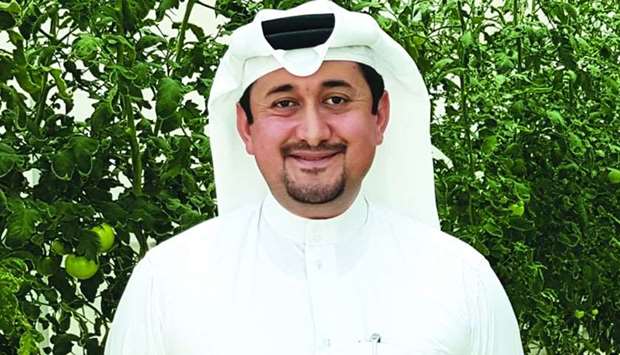Qatar’s agricultural sector is improving significantly and is in a much better situation now than in previous years, prominent Qatari agriculturist Nasser Ahmed al-Khalaf has said.
“The production season has (substantially) become longer,” he told Gulf Times, citing the continuous operations of local farms, particularly Agrico, a private Qatari agricultural development company that he founded in 2011.
The company, which operates a 120,000sqm (12 hectare) organic farm in Al Khor, has been at the forefront of helping the country achieve food security. It produces organic vegetables all year long, using locally-made and state-of-the-art hydroponic greenhouses.
Al-Khalaf noted that while the local production of fresh vegetables in the summer normally slows down, the quantity has been increasing with every passing year.
In addition, he said Agrico continued operating its seasonal greenhouses this summer, which started running during the peak period last year.
“I see a few farms still have products in the market (this summer). Though not much, it’s better than last year and I believe next year will be even better,” stressed al-Khalaf, who had earlier announced plans to develop a 1mn sqm of land in Qatar for indoor farming.
He added that the “project under study” will involve more than four local farms, and could be in operation by the end of 2019 or early 2020 if plans are pushed through as scheduled.
“Not to forget that in our region no one else is producing at this time; so, we can say that Qatar is improving dramatically and is in a much better situation than ever,” he stressed.
Earlier, Qatar had produced what could be considered a national record for the biggest organic tomato in the country, weighing 1.34kg and six times bigger than the average-size tomato.
The tomato was successfully grown by Agrico in the country in a plain organic manner - without any genetic modification or through the use of pesticides and chemicals to protect the plant.
Meanwhile, it is learnt that the demand for local fresh produce such as tomatoes, cucumber, eggplant, mushrooms and other green leafy vegetables, as well as herbs, in the country has been increasing substantially.
Such demand, al-Khalaf noted, has reduced Qatar’s vegetable imports from various countries by around 10% during the peak periods.


